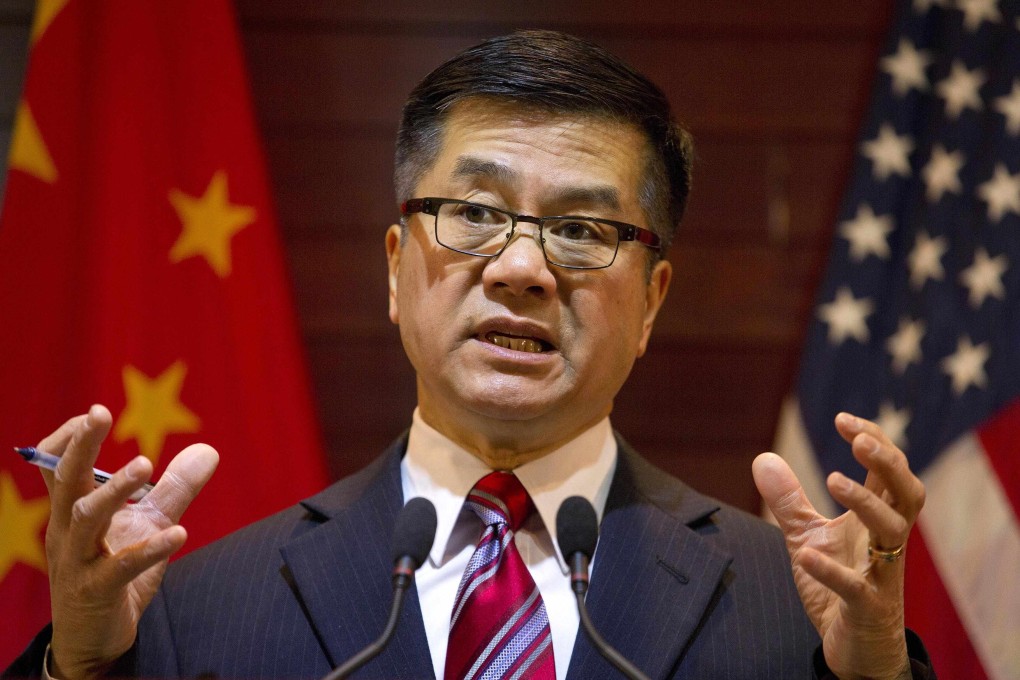Outgoing US ambassador Gary Locke calls for greater human rights in China
Envoy says recent arrests of journalists and activists endanger freedom of speech

The outgoing US ambassador to China on Thursday urged Beijing to improve its human rights record, in parting remarks just days before he is to leave the country.
Rights are “universal” values that represent more than economic benefits, Gary Locke said, speaking to journalists at the US embassy.
“We call on China to continue to improve – well we call on China to improve its record in this area,” Locke said.
“There’s been great prosperity and an increase in the quality of life and the standard of living here in China,” he said.
“But human rights is more than economic prosperity and the economic conditions of people, but also fundamental universal rights – freedom of speech, freedom of assembly, the ability to practice one’s own religion.
“We’re very concerned about a recent increase in arrests of activists and journalists ... and we very much are concerned about the arrests and detentions of people who are engaged in peaceful advocacy.”